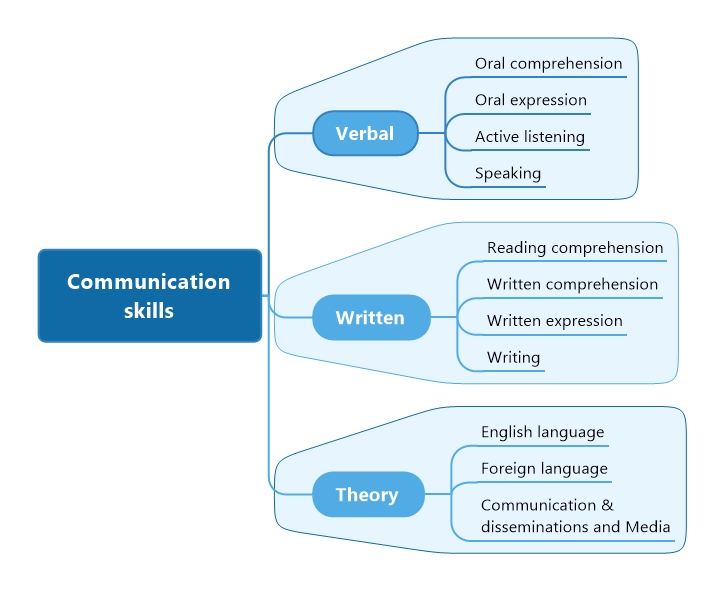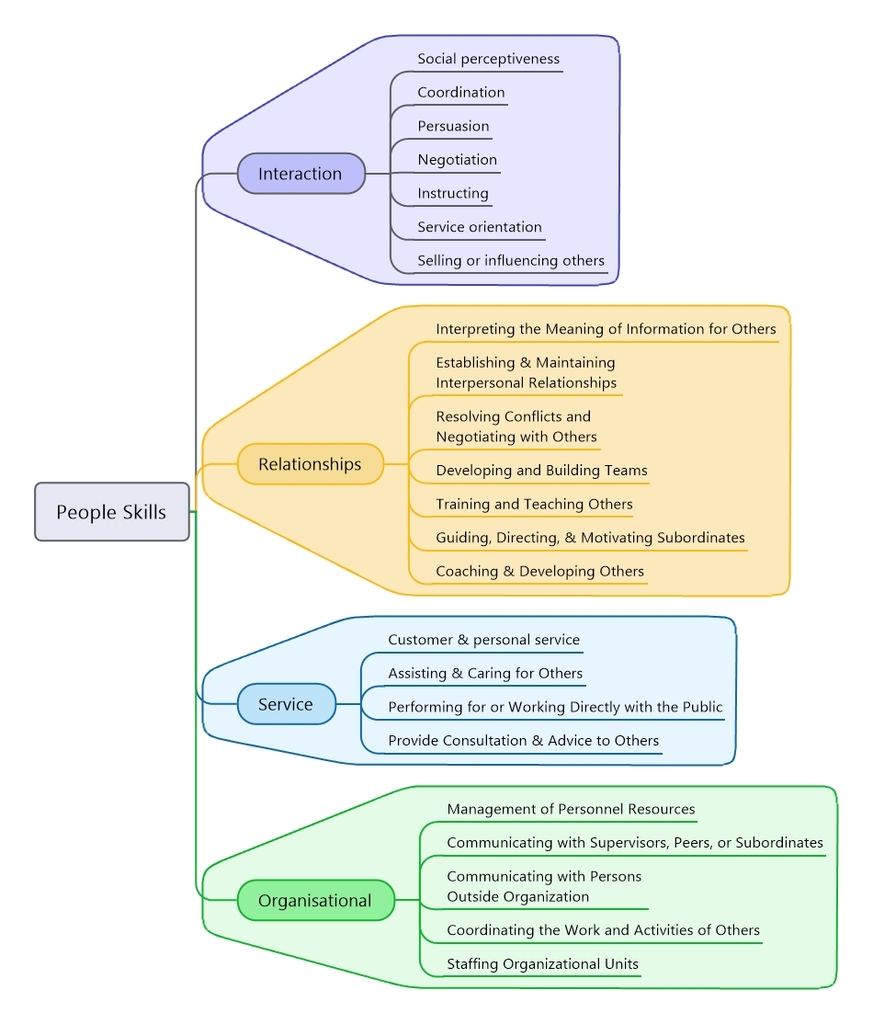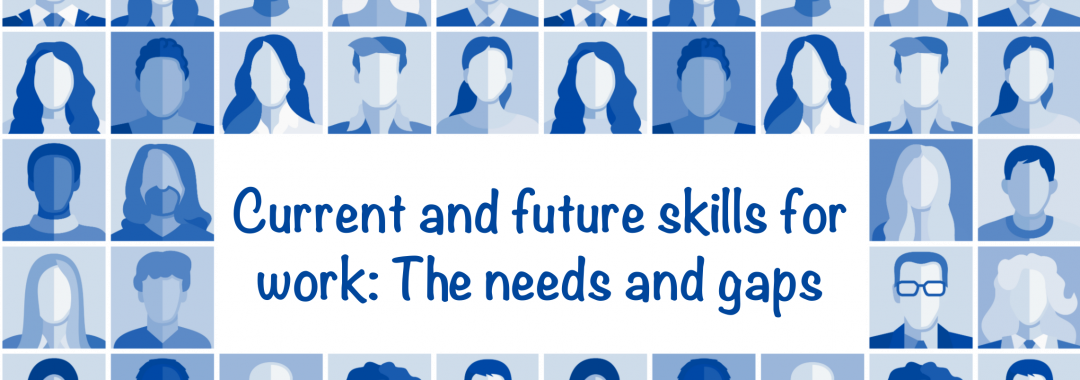
As organisations seek to recover from the multiple stresses of the last few years, and as many face problems recruiting qualified staff, it is important for all concerned to understand the needs and gaps in the skills required in the workplace, now and in the future. This is the rationale for a research-based policy report published by the UK Department of Education in May 2022[1]. The aim of the research was to identify areas where, both in the economy as a whole and in a small number of priority areas, there are both skills shortages and future growth is expected. Here I summarise some of the report’s key findings and reflect critically on them.
Core transferable skills
The report identifies 5 sets of core transferable skills that are regarded as important across many occupations and are also expected to be important in five years’ time:
- Communication skills
- Digital and data skills
- Application of knowledge skills
- People skills
- Mental processes
These sets of core transferable skills were also found to be in high demand in occupations facing a shortage of labour.
Communication skills
Communication skills were found to be of the utmost importance in the economy as a whole, as well as in the priority areas of management, health, and science and technology. The reports’ classification of communication skills is shown in the image below.

The report also states that at least an intermediate level of proficiency is required for almost all of these component communication skills, with an advanced level required in English language, oral comprehension, oral expression, written comprehension and reading comprehension for over 20% of jobs.
Reflections from a communication and global perspective:
- There is a clear need (as the report acknowledges) to identify best ways of developing communication skills.
- A first step in this is to understand more about the communication process, where several mistaken ideas are widespread.
- Since the UK is seeking to become ‘Global Britain’[2], there should be a greater emphasis on ‘global communication skills’. None of the associated terms – international, multicultural, diversity, global – are mentioned even once in the report.
- For linguists, their taxonomy is rather confusing; e.g. it is not clear why ‘English language’ and ‘foreign language’ are classified as ‘theory’.
Useful information on all of the above points, including tools for development and case study examples, can be found in our new book Global Fitness for Global People: How to Manage and Leverage Cultural Diversity at Work
Current vs future skills needs
The report also identifies sets of skills that are likely to be relatively more important in the future than now. These include:
- People skills
- Mental processes
- Application of knowledge skills
- Training and teaching of others
- Learning strategies
It is interesting to note that ‘people skills’ are listed both here and as core transferable skills.
People skills
The report lists a large number of component people skills, divided into four categories as shown in the diagram below. It further reports that for over 55% of jobs an advanced level of proficiency is required in the skills of ‘Establishing and maintaining interpersonal relationships’, ‘Communicating with supervisors, peers or subordinates’, and ‘Customer and personal service’, and that for over 75% of jobs at least an intermediate level is required in ‘Social perceptiveness’, ‘Training and teaching others’ and ‘Interpreting the meaning of information for others’.
Reflections from a rapport/relationship and global perspective:
- People skills rely heavily on good communication skills. This is made explicit within the organisational set of people skills, but communication also underpins most of the other sets, especially interactional skills and relationship skills.
- There is a clear need (as the report acknowledges) to identify best ways of developing people skills.
- A first step in this is to understand more about the factors that affect rapport and relationship management.
- Since the UK (like many other countries) is a multicultural society, there is a need for greater acknowledgement of ‘global rapport management’ skills. None of the associated terms – international, multicultural, diversity, global – are mentioned even once in the report.
- Useful information, with case study examples, on all of the above can be found in our new book Global Fitness for Global People: How to Manage and Leverage Cultural Diversity at Work

Taking things further
Our team at GlobalPeople Consulting Ltd. have been training, teaching, researching, running masterclasses, and providing consultancy on communication skills and people skills throughout our careers, especially with respect to contexts of diversity.
Our latest book, Global Fitness for Global People: How to Manage and Leverage Cultural Diversity at Work, provides clear explanations, introduces a wide range of development tools, offers strategic advice for senior managers, and uses numerous case study examples to illustrate our points. To learn more, please visit our website page. To discuss how we can support you on your/your organisation’s development journey, just send us an email.
Professor Helen Spencer-Oatey, Managing Director
References
[1] https://www.gov.uk/government/publications/understanding-current-and-future-skills-needs

